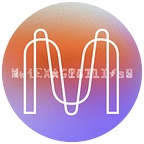Coda: Keeping Cryptocurrency Decentralized
We’re excited to announce funding for O(1) Labs and our first project, Coda, a cryptocurrency that achieves new levels of decentralization and scaling. We’ve raised a $3.5M seed round from a group of top investors in the space including MetaStable, Polychain Capital, Electric Capital, Naval Ravikant, Elad Gil, Linda Xie, Fred Ehrsam, Kindred Ventures, and SciFi VC.
Coda is a new cryptocurrency protocol that reduces the size of the blockchain from gigabytes down to the size of just a few tweets.
Here’s why that matters:
Decentralized Cryptocurrency at Scale
Today, if you want to verify a transaction on a cryptocurrency, you need to first download a full copy of the blockchain. This works fine in the early days of a network, but quickly becomes impractical over time.
When a cryptocurrency starts out and hasn’t had too many transactions, its blockchain is only a few megabytes. But as a cryptocurrency gets more users and activity, its blockchain grows well beyond that. Most top cryptocurrencies today are many gigabytes large and growing, with some near or exceeding 100GB. For most people, downloading a file this big just isn’t possible, especially in developing parts of the world.
Coda overcomes this historical tradeoff between scaling and decentralization by dramatically reducing the amount of data each user needs to download. Instead of sending around the entire blockchain, the Coda network uses zk-SNARKs to compress the entire blockchain into a tiny snapshot and sends around that snapshot instead. That means that no matter how big the blockchain gets, or how many transactions are performed, the cost to verify transactions and data remains constant and inexpensive — accessible to everyone.
In the near term, Coda will enable any device to verify their balance and transactions, no matter if they have very little bandwidth or only a mobile phone, enabling a store of value accessible to everyone.
In the future, this technology will allow nearly any internet connected device to instantly interact with blockchain-verified data. Your browser could let you know whether the site you’re visiting is managing your password properly. Your email client could tell you whether a ticket seller responding to your ad on Craigslist really owns the seats she’s selling and verify her identity. A nonprofit site could tell you where every dollar given by their users was actually spent that year, and then automatically file your taxes for you.
Coda: Join our Community
Today we’re releasing a draft of the Coda whitepaper, announcing our seed funding, and launching our community channels (Telegram, Reddit, Twitter). Coda is the first step in our mission to make the internet legible and transparent. We envision a world where billions of people around the world will use Coda to store value and secure their digital lives. If this sounds exciting to you, we invite you to follow our community accounts, as well as our official announcement twitter and mailing list.
We’re thrilled to be working on this problem; if cutting edge cryptography or functional programming are interesting to you, We’re expanding our developer team, and we encourage you to apply!
Note: We have no public plans for future token distributions at the current time. We invite interested parties to follow our mailing list or Twitter for future official announcements, which will be announced simultaneously on both channels.
Coda is a new cryptocurrency project being developed by Izaak Meckler, Evan Shapiro, Brad Cohn, and Brandon Kase. While studying cryptography as a PhD student at UC Berkeley, Izaak learned about the potential of zk-SNARKs. Partnering with longtime friend and CMU roboticist Evan Shapiro, they began working on applying zk-SNARKs to the problem of creating a highly scalable yet decentralized cryptocurrency.
